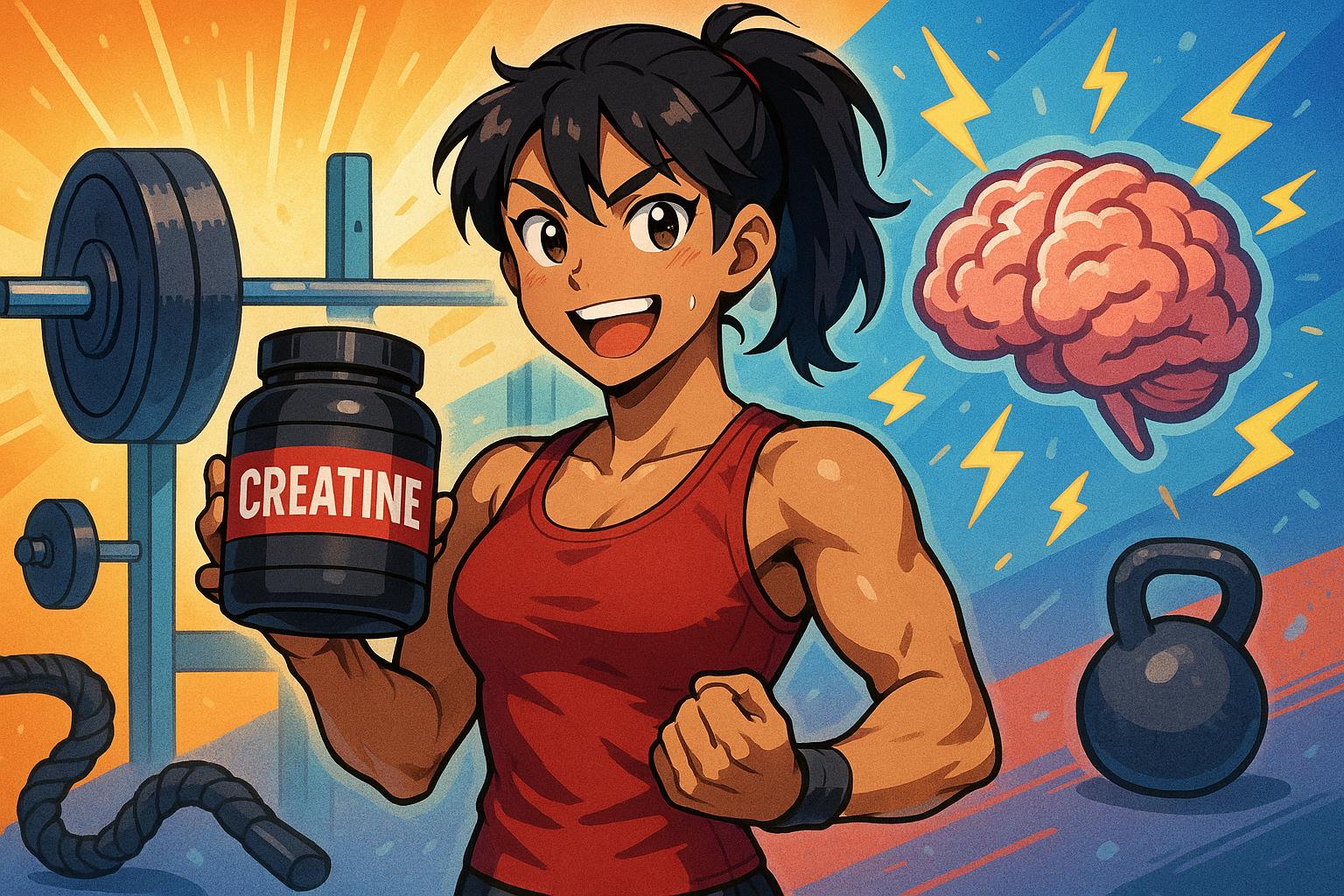Creatine has garnered considerable attention in the fitness world, embraced by athletes and fitness enthusiasts alike. From the training regimes of Olympians to the humorous portrayals of gym culture in shows like The White Lotus, its popularity continues to surge. Although primarily known as a supplement for physical performance, emerging research indicates potential benefits beyond muscle strength, particularly regarding mental health and longevity.
Creatine is a naturally occurring compound synthesized in the liver, kidneys, and pancreas. It can also be obtained through dietary sources such as red meat, fish, and poultry. This substance serves as a key energy source for muscles, working to regenerate adenosine triphosphate (ATP), the molecule crucial for energy transfer in cells. Dr Imtiaz Desai, a Sydney-based exercise physiologist, explains that creatine plays a pivotal role in short-duration, high-intensity activities, such as sprinting and weightlifting, enhancing athletic performance during these bursts of effort. However, it is less effective for endurance-based activities like marathons.
While the average person generally does not require creatine supplementation—except in rare instances such as genetic creatine deficiency—many individuals within fitness circles take it to maximise their workouts. The most commonly used form is creatine monohydrate, noted for its extensive research backing and affordability, typically priced around 50 cents per five-gram serving. This widespread accessibility, however, does not come without caution.
Creatine is considered safe for healthy adults, with a strong body of research supporting its long-term use. However, caution is warranted as the US Food and Drug Administration does not regulate dietary supplements in the same way as pharmaceuticals, raising concerns about product purity and the accuracy of ingredient lists. Individuals are encouraged to look for products that carry an NSF seal, indicating third-party verification for content compliance. Minor side effects such as bloating or gastrointestinal discomfort may occur, particularly in those opting for higher doses—a practice dubbed "loading," which many experts advise against, including Dr Avinish Reddy.
Recent studies suggest that creatine may not contribute significantly to muscle growth as once believed. Desai's own research demonstrated that participants taking creatine experienced negligible differences in muscle gain compared to those not using the supplement following an identical weightlifting programme. The initial weight gain often associated with creatine is largely attributed to water retention rather than true muscle hypertrophy. This raises questions about the supplement's long-term benefits, which may lie in its ability to facilitate more intense training sessions rather than produce immediate visible results.
Despite its associations with athletes, creatine is also being examined for its potential advantages in older adults, particularly in combating sarcopenia—the age-related loss of muscle mass. Experts advocate that creatine can support muscle retention when coupled with regular physical activity, making it especially beneficial for older women post-menopause. Furthermore, the health benefits of creatine extend beyond the physical realm, with researchers exploring its role in cognitive function and mental health. Studies indicate that creatine may aid in alleviating symptoms of depression by enhancing brain energy metabolism and promoting neurotransmitter production, although it is not a standalone treatment.
Interestingly, some findings suggest that creatine could play a role in Alzheimer's prevention, further solidifying its status as a supplement with broader implications. It is particularly relevant for vegetarians and vegans, who may not obtain enough creatine from their diets. However, individual responses to creatine consumption can vary, with estimates suggesting that 20-30% of the population may be classified as "non-responders."
As creatine gains traction among younger populations, concerns regarding its use in adolescents must be addressed. Despite its general safety for adults, medical organisations, including the American Academy of Pediatrics, advise against its use in individuals under 18 due to the unknown long-term effects. The prevalent use of creatine in this age group may reflect broader trends in body image and fitness obsession, leading researchers like Dr Kyle Ganson to explore its connections to muscle dysmorphia among young men.
While the evidence underscores creatine's potential advantages in both physical performance and cognitive health, it's essential to approach its use thoughtfully. For those considering supplementation, particularly adolescents or those with pre-existing health concerns, consulting healthcare professionals is advisable. Ultimately, while creatine can be a valuable tool in achieving fitness goals, foundational factors such as a balanced diet and structured exercise should remain at the forefront of any health regimen.
Reference Map
- Paragraphs 1, 2, 3, 4
- Paragraphs 5, 6
- Paragraphs 7, 8
- Paragraph 9
- Paragraph 10
- Paragraph 11
- Paragraph 12
Source: Noah Wire Services
